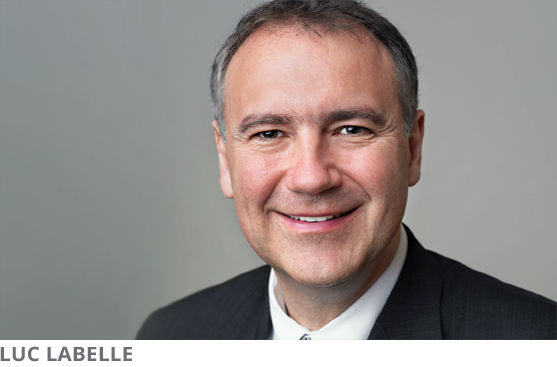Plans for professional bodies for financial advisors may be proliferating, but Luc Labelle, CEO of Quebec’s Chambre de la sécurité financière, says that his profession does not need more bodies because his organization already plays this role. He flatly rejects recent proposals by Quebec’s financial planning institute – the Institut québécois de la planification financière (IQPF) and an independent advisors group – the Association professionnelle des conseillers en services financiers (APCSF formerly the RICIFQ) which are looking for expanded roles.“The IQPF is an association with a precise role in the regulatory structure. It has exclusivity over training of financial planners. This distinguishes it from other associations. The RICIFQ is proposing a project that sees it managing financial advisors. This vision stems from a misunderstanding of oversight of financial advisors in Quebec: the Chambre is (advisors) professional body in the province,” Luc Labelle told The Insurance and Investment Journal in an exclusive interview.
Today there are 45 professional bodies in Quebec. They report to the provincial Ministry of Justice, which delegated supervision of professionals to the Ordre des professions du Québec (OPQ). A similar structure exists in the financial sector. The Quebec Finance minister asked Quebec’s financial markets regulator, Autorité des marchés financiers (AMF), to supervise professionals in the sector. The AMF in turn delegated this task to self-regulatory organizations like the Chambre.
“Forty-five bodies supervise professionals in the province…Their mission is to protect the public and ensure discipline.”
Labelle says that the only rationale for a professional body is to protect the public. “The IQPF says it wants to develop the profession. We’ve done quite a lot. For its part, RICIFQ claims that it can bar professionals who are sanctioned in insurance or investment on both sides. This is already happening, because we do it. There’s a lot of misinformation circulating,” he says.
It is impossible to separate financial advisors’ consulting services from distribution, Labelle continues. “What makes a professional is not the quantity of diplomas, but rather the fact of being managed by an organization. It’s knowing what your clients don’t have and that they don’t know what they need. It’s a bit like visiting your doctor. You go see them to get cured, but you don’t know in advance what they will prescribe. Clients do not always know if the advisor’s suggestions are good. They want advice. This is why advisors must put the client’s interests first.”
Bill 188: focus on self-regulation
The current self-regulation model is successful, he adds. “We offer integrated control over different facets of the industry. We do not want the client to have to become an expert in types of professions. Whether specialists call themselves financial advisors or financial planners does not make a difference to the client. If the IQPF became a professional body, we would then have two trustees and two discipline committees. What would happen if the two reached different conclusions?” he asks.
Given the upcoming revision of the Act respecting the distribution of financial products and services, Labelle says he has only one great expectation – that the government continue to endorse self-regulation. “Bill 188 has brought relative peace to the industry. We expect that the author of the five-year report will give it some colour, which will be interpreted in different ways,” he says.
Self-regulation is a formula with many advantages, Labelle adds. “We have members who govern because they know the practice best.”
The current formula also helps control rising costs. Labelle points out that the Chambre is the top-performing SRO in terms of productivity in Canada. “Payers are also members. When they contribute more, we have to explain why,” he says.
The Chambre has considered adding powers over time. “If the occasion arises, we will raise that point too. We are counting on this to go forward,” Mr. Labelle adds.
Endless conflict with banks
The Chambre has locked horns with the large Canadian banks, which have refused to let the Chambre’s trustee access information on dismissed employees. “They stopped cooperating with us in this area in 2011. It gave them bad press. That’s not the reason they gave, but we suspect that’s the case,” Labelle says.
Without this information, the Chambre cannot go forward with a number of files, he adds. It consequently decided to sue CIBC to obtain jurisprudence with other banks in this area.
“It is a little shocking to have to challenge them on the legal battlefield; it is also a political struggle of sorts. Remember, the banks were the only stakeholder in Quebec that did not disagree with the idea of a single securities commission. The banks are also under federal jurisdiction. Unfortunately, they chose to protect their reputation rather than the public,” Labelle comments.




